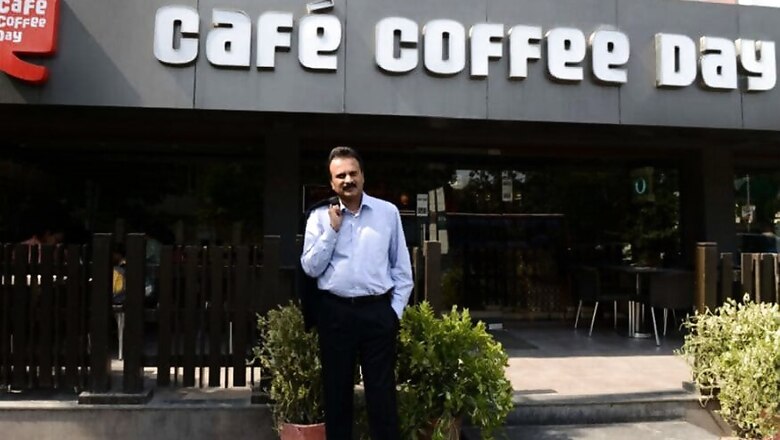
views
Yes, a lot can happen over coffee and a lot did happen over it. A rich man, a successful entrepreneur made an enviable business empire and when things appeared to be falling apart, he took his life because of his belief that he had failed as a businessman. Condolences have poured in, many have lamented ‘tax-terrorism’ and how the country is not providing the right environment for entrepreneurship.
Government agencies and banks can drive anyone to despair, wrote Vijay Mallya on Twitter, his sentiment echoed by many. But amid the criticism, the investigations and the buzz about the future of Café Coffee Day, a story is going unreported. The story is that of an epidemic which has gripped the country but has still not found its rightful place in the screaming headlines.
VG Siddhartha has become a statistic, one among the many in the country who have taken their lives. A report published by The Lancet pegs this figure at 2.3 lakh. Officially, the National Crime Records Bureau has provided a figure of 1.3 lakh in the year 2016. Many cases of suicide even go unreported in the country.
The Lancet, a British Journal that has published a paper on suicides, says that “suicides in India are a public health tragedy in need of a plan”. The paper by Rakhi Dandona and colleagues, reported in The Lancet Public Health, notes that “Such sobering figures ought to be galvanising, yet coordination at the national level has been slow. Although there are substantially more suicide deaths in India each year than AIDS-related deaths (62,000 in 2016) and maternal deaths (45,000 in 2015) combined, suicide prevention has attracted considerably less public health attention.”
“We need to appreciate that today suicide has become one of the top killers in the world, most people have ongoing psychological issues though this may not always been a case,” says Dr Samir Parikh, psychiatrist and director of Department of Mental Health and Behavioral Sciences, Fortis Healthcare.
Dr Parikh says it is a myth that those who are not well-to-do would be vulnerable. “All human beings are equally vulnerable. Everyone has their own struggles,” he adds.
On a specific question on why a rich and successful entrepreneur, educated and with access to medical help would not seek it, doctor says the problem is when the affected person fails to reach out or when friends and family fail to read the signs.
“Corporate India needs to see mental health outcomes. Often those in leadership roles will not talk about it and not seek help. Reaching out is important,” says Dr Parikh.
Senior psychiatrist Dr Nimesh Desai, director of Delhi government-run Institute of Human Behaviour and Allied Sciences (IHBAS), says suicidal behaviour is largely contributed by depression. Early identification and focus on problem solving will help.
Another aspect is responsible reporting on suicides. “This is extremely crucial since journalists should realise that others are watching. The reportage has to focus on how suicides should be prevented. It should be non-sensational. It should highlight the helpline numbers available,” says Dr Parikh.
Media and online coverage of suicide can influence people negatively by contributing to copy-cat behaviour, or positively by encouraging help-seeking behaviour. According to the National Mental Health Survey 2016, in India, among those with suicidal risk, 80 per cent don't receive any health intervention. “Your report on suicide could be a matter of life or death to someone else,” advises ‘Reach’, a resource group for education and advocacy for community health, a nonprofit organisation.
Many studies show that the way suicide is covered in the news can increase the likelihood of certain vulnerable readers attempting suicide, says Reach. Therefore, to minimise the risk of copy-cat suicides avoid: Headlines that sensationalise or glamorise , explicit or graphic details of the methods used for suicide, giving extensive space or undue prominence to suicide stories. Reach advises this in a resource manual it has provided to the journalists.
Lastly, the taboo that goes with mental health and the very serious implications of brushing things under the carpet. It is a huge factor says neurologist, Dr Sonia Lal Gupta.
“People need to understand any mental ailment is because of a chemical imbalance like another medical problem, for example, in diabetes it is due to an imbalance of insulin,” she says.
Dr Gupta also says the government needs to do a lot more in this direction. “It needs to increase the budget on mental health. Currently, it is a very small part of health. It also needs to increase awareness and run programs about the same so people know it's ok to have issues like anxiety and depression and also understand how common it is. It is also very important that doctors from all specialties start screening patients for depression so that it can be recognised and treated in time.”
The World Health Organisation says that one out of 20 people suffer from depression in India. What is worse is that this is killing silently.



















Comments
0 comment